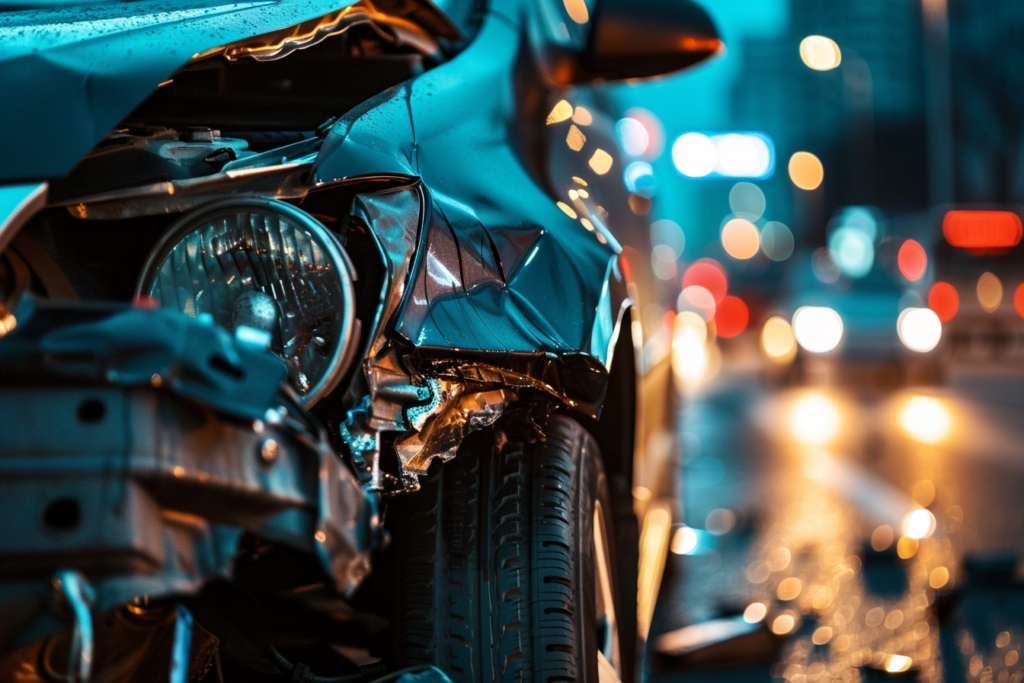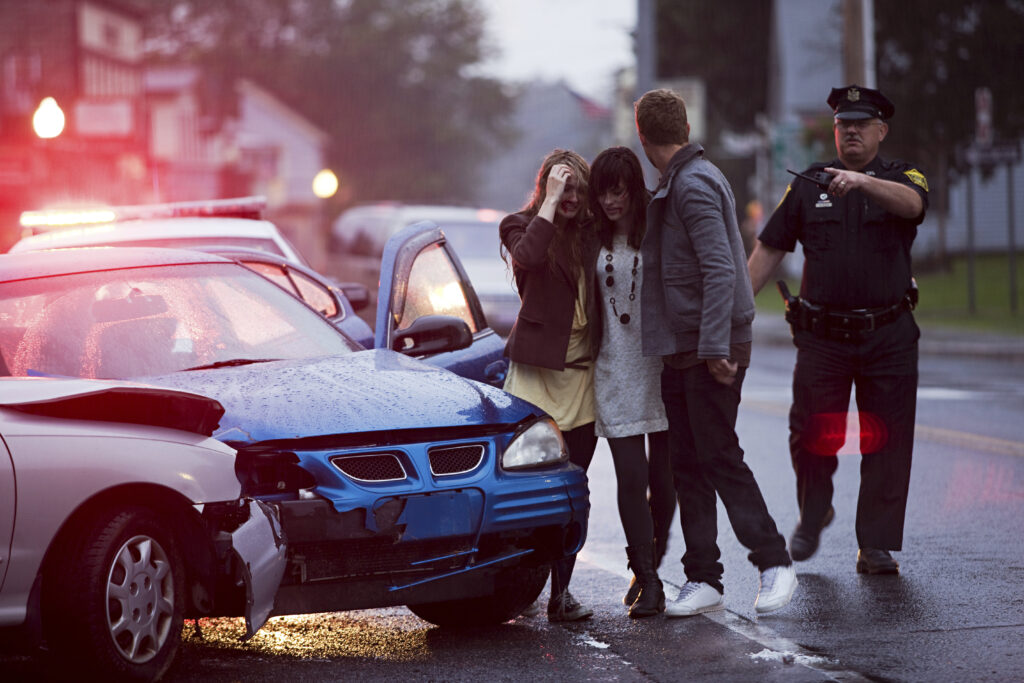Understanding Hit and Run Laws in California: What You Need to Know
In California, a hit and run is defined as the act of being involved in a vehicle accident and then leaving the scene without identifying yourself to the other party involved, regardless of who was at fault. This applies to accidents involving another vehicle, pedestrian, or even property damage. It’s important to note that the intent behind leaving the scene is often irrelevant; the law focuses on the act itself. Even if you believe the accident was minor or that no one was hurt, failing to stop and provide information can lead to serious charges.
Types of Hit-and-Run Incidents
There are two main types of hit-and-run incidents in California:
- Property Damage Only: This involves damage to vehicles or other property, such as fences or mailboxes, without any injuries to people. Even if the damage seems minor, leaving the scene can result in significant legal consequences. It’s also worth mentioning that many people mistakenly believe that if no one is around to witness the damage, they are free to leave. However, failing to report and acknowledge the incident can lead to misdemeanor charges.
- Injury or Fatality: This involves accidents where a person is injured or killed. These cases are treated with the utmost seriousness, and the penalties are significantly harsher. The law requires that you not only stop but also render necessary assistance, potentially saving lives. Failing to do so can escalate charges to a felony, leading to severe legal consequences and a long-lasting impact on your life.
The legal obligations and penalties differ significantly between these two categories, with the latter carrying much harsher consequences due to the potential harm to individuals involved.

Legal Obligations After an Accident
California law requires that drivers involved in an accident must stop and fulfill certain obligations. These include:
- Exchanging Information: You must provide your name, address, vehicle registration number, and, if requested, your driver’s license to the involved parties. This exchange is crucial for insurance claims and legal documentation. It also establishes a record of the accident, which can be essential if disputes arise later.
- Rendering Aid: If someone is injured, you are required to provide reasonable assistance, which may include calling emergency services. This obligation is not just a legal formality but a moral one, as timely assistance can be critical in saving lives or reducing the severity of injuries. It’s important to stay calm and assess the situation carefully before acting.
- Reporting the Accident: If the accident results in injury, death, or significant property damage, you must report it to local law enforcement and the Department of Motor Vehicles (DMV). This report provides an official record that can be crucial for legal proceedings and insurance claims. Failing to report can complicate your legal situation and potentially increase penalties.
Failing to fulfill these obligations could result in a hit-and-run charge, which can have long-lasting effects on your driving record and personal life.
Consequences of a Hit and Run in California
The consequences of committing a hit-and-run in California vary depending on the severity of the incident. Understanding these consequences can help underscore the importance of adhering to your legal obligations.
Misdemeanor Hit and Run
For accidents involving only property damage, a hit and run is typically charged as a misdemeanor. Penalties may include:
- Fines ranging from $1,000 to $10,000: These financial penalties can be a significant burden, especially when combined with potential civil liabilities.
- Up to six months in county jail: Incarceration, even for a short period, can have a profound impact on your personal and professional life.
- Probation: This can impose restrictions on your freedom and daily activities, with regular check-ins and compliance with certain conditions.
- Restitution to the victim for property damage: Beyond fines, you may be required to compensate the affected party for repairs and other related costs, which can add to your financial strain.
Felony Hit and Run
If the accident involves injury or death, the hit-and-run charge can escalate to a felony. Penalties for a felony hit and run can include:
- Fines ranging from $1,000 to $10,000: While similar to misdemeanor fines, these may be accompanied by more severe financial repercussions if personal injury lawsuits are filed.
- 16 months to 3 years in state prison, or longer if the accident resulted in death or serious injury: Prison time can drastically alter your life trajectory and impact your family and future employment prospects.
- Restitution to victims for medical expenses and other damages: The financial burden of covering medical expenses can be substantial, particularly if long-term care or rehabilitation is needed.
Additional Consequences
In addition to legal penalties, a hit-and-run conviction can lead to:
- Increased insurance rates or cancellation of your policy: Insurance companies often view hit-and-run incidents as high risk, leading to significantly higher premiums or even policy termination.
- Suspension or revocation of your driver’s license: Losing your driving privileges can affect your ability to work and fulfill personal responsibilities.
- Permanent criminal record: A criminal record can hinder future employment opportunities, affect personal relationships, and limit other life prospects.

Defenses Against Hit and Run Charges
If you are facing hit-and-run charges, it’s crucial to understand the potential defenses that may be available. These can include:
- Lack of Knowledge: Arguing that you were unaware that an accident occurred. This defense might apply if the accident was minor and you genuinely did not realize contact was made.
- No Damage or Injury: Demonstrating that there was no damage to property or injury to persons. If evidence supports this claim, it may lead to a reduction or dismissal of charges.
- Not the Driver: Proving that you were not driving the vehicle involved in the hit and run. This defense can be particularly strong if you have credible witnesses or evidence placing you elsewhere at the time of the incident.
Consulting with a legal professional can help determine the best defense strategy based on the specifics of your case. A knowledgeable attorney can evaluate the evidence against you and work towards minimizing the consequences or having the charges dropped.
Steps to Take If You’re Involved in an Accident
If you find yourself involved in an accident, whether as the responsible party or not, here’s what you should do:
- Stop Immediately: Pull over safely and stop your vehicle. It’s important to remain at the scene to avoid further legal complications.
- Check for Injuries: Assess the situation for any injuries and provide assistance if needed. Quick action can prevent further harm and fulfill your legal duties.
- Exchange Information: Share your contact and insurance details with the other party. This is essential for both legal compliance and facilitating the insurance claim process.
- Document the Scene: Take pictures and note details of the accident scene. Documenting can provide valuable evidence if disputes arise later.
- Report the Accident: Notify the local police and your insurance company about the accident. Prompt reporting ensures an official record is made, which can be crucial for legal and insurance matters.
By following these steps, you can protect yourself legally and ensure that you are fulfilling your legal obligations. Taking these actions can also assist in the fair resolution of any claims or disputes that arise from the accident.
Final Thoughts
Understanding and adhering to California’s hit-and-run laws is not only a legal responsibility but also an ethical one. These laws are in place to ensure accountability and safety on the roads. They aim to protect all road users by promoting responsible behavior and providing a framework for addressing accidents.
Whether you’re a victim or an accused party in a hit-and-run incident, knowing your rights and responsibilities can make a significant difference in the outcome. Being informed equips you to make better decisions at the moment and seek appropriate legal guidance when necessary.
For more information or legal advice, consider consulting with an attorney who specializes in traffic law in California. They can provide guidance tailored to your specific situation, offering a clearer understanding of the legal landscape and helping navigate the complexities of your case.
Contact The Win Law Firm for Expert Representation
If you are facing hit-and-run charges, it is crucial to have experienced legal representation on your side. The Win Law Firm specializes in traffic law and has a proven track record of successfully defending clients against hit-and-run accusations in California. Our team understands the complexities of these cases and is committed to providing you with personalized, strategic defense. Don’t navigate this challenging legal situation alone. Contact The Win Law Firm today for a consultation, and let us help you achieve the best possible outcome for your case. Your future is our priority, and we are here to advocate for your rights every step of the way.
